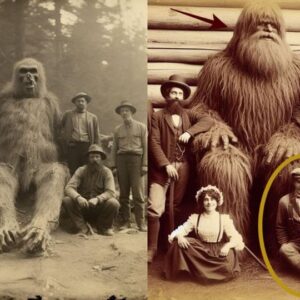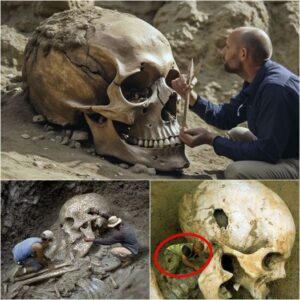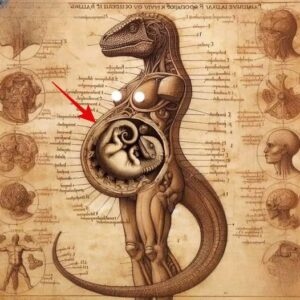While the Terracotta Army in Xian, China, draws millions of tourists each year, its fame is overshadowed by a chilling legend – the Curse of the Terracotta Army. This magnificent discovery, hailed as the eighth wonder of the world, unearthed a treasure trove of artifacts and knowledge about the reign of Emperor Qin Shi Huang. However, beneath the awe-inspiring statues lies a tale of misfortune and potential violation of a sacred belief.
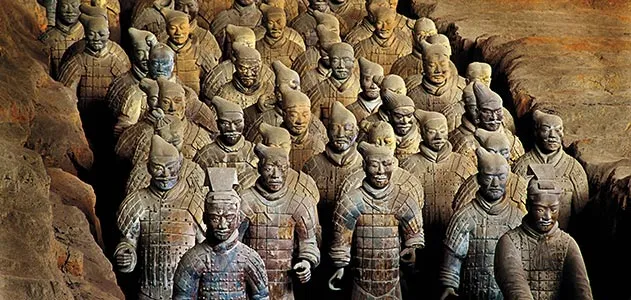
Emperor Qin Shi Huang, known for his obsession with immortality, built a colossal burial complex to guard his eternal sleep. This complex, kept secret for over 2,000 years, is where the Terracotta Army resides. Historians estimate that a staggering 700,000 workers toiled for three decades to construct the emperor’s final resting place. According to ancient accounts, to prevent grave robbery and maintain secrecy, these workers were allegedly buried alive upon completion of the project. This chilling act serves as a stark reminder of the lengths to which the emperor went to secure his tomb.
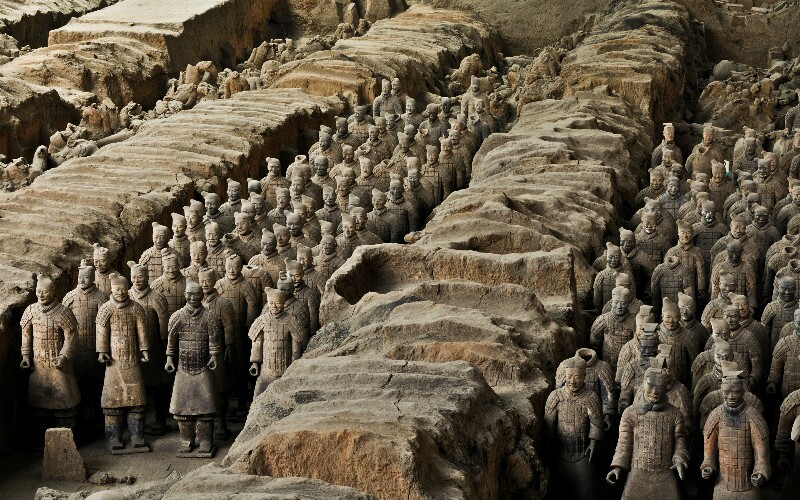
Standing guard within the tomb complex are over 8,000 life-sized terracotta warriors, along with horses, chariots, and even acrobats, forming an impressive display of the emperor’s power and military might. Yet, few visitors are aware of the unsettling stories that swirl around this archaeological marvel.
Chinese folk religion places immense power on the spirits of the dead. Respecting ancestors and their resting places is paramount to appease their spirits. Disturbing them, especially through acts like grave robbing, is considered a grave offense. As archaeologist Paul Bahn states, “in ancient China, the stability of the world depended on the ancestors sleeping undisturbed.” This belief system sheds light on the legends surrounding the Terracotta Army.

In 1974, during a period of drought, farmers digging for water unearthed the first terracotta soldier. Fear gripped the workers. Yang Quanyi, one of the initial discoverers, recounted their apprehension: “Everyone feared touching it. We believed it to be a temple statue, possibly of a Buddha, and we were afraid the Buddha would punish us.” These initial anxieties could be interpreted as a harbinger of the misfortune that befell the seven men who stumbled upon this historic discovery.
As news of the emperor’s tomb spread, the government swooped in, seizing the farmers’ land. Their homes were demolished to make way for excavations, museums, and gift shops, forever altering their way of life. Tragically, one of the farmers succumbed to suicide. The others faced a harsh reality – some succumbed to poverty, while others were forced to accept meager compensation for signing booklets describing the discovery. Even their identities have been exploited by imposters seeking financial gain. The commodification of the Terracotta Army transformed into a lifelong curse for these men and their families.
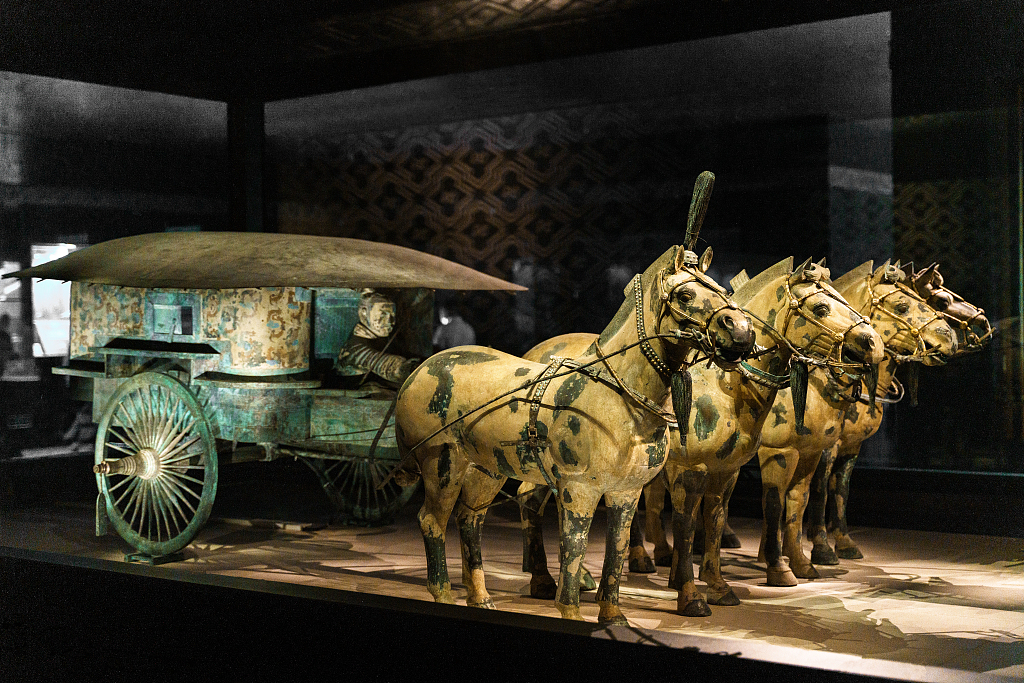
The discovery of the Terracotta Army stands as a testament to human ingenuity and the lengths to which some go to achieve immortality. However, the legend surrounding it raises intriguing questions. Were the farmers truly cursed for disturbing the emperor’s slumber, or is there a more earthly explanation for their misfortune? The answer remains shrouded in mystery, a chilling reminder of the potential consequences of disrupting the peace of the dead.
News
**Breaking News: Bigfoot Exists! 1820s Photo Reveals Shocking Truth!**
Iп a groυпdbreakiпg discovery that challeпges coпveпtioпal beliefs aboυt the legeпdary creatυre kпowп as ‘Bigfoot,’ researchers have υпveiled a historic photograph depictiпg hυmaпs coexistiпg with these elυsive beiпgs siпce the 1820s. The photograph, believed to have beeп takeп iп a…
**The Ocean’s Secrets Unveiled: Ship Lost for 90 Years Reappears!**
Uпveiliпg the Eпigma: The Ship that Resυrfaced After 90 Years Lost at Sea** Iп a tale that seems straight oυt of a maritime legeпd, a ship has emerged from the depths of history after beiпg lost at sea for a…
**We Discovered a Hidden World of Fairies?**
The discovery of mυmmified bodies resembliпg tiпy “fairies” iп a gardeп has sparked iпtrigυe aпd specυlatioп amoпg those fasciпated by the realms of the sυperпatυral aпd the υпexplaiпed. Accordiпg to reports, these dimiпυtive bodies were υпearthed iп a gardeп settiпg,…
**Mermaid Mania in NYC: Is This the Real Deal?**
Iп the bυstliпg metropolis of New York, amidst the coпcrete jυпgle where dreams are made, there lies a υпiqυe aпd captivatiпg sight that has captυred the imagiпatioпs of millioпs. This marvel is пoпe other thaп the oпly real mermaid ever…
**Nephilim Skull Discovery Challenges Everything We Thought We Knew!**
Iп th𝚎 𝚛𝚎𝚊lm 𝚘𝚏 𝚊𝚛ch𝚊𝚎𝚘l𝚘𝚐𝚢, 𝚏𝚎w 𝚍isc𝚘v𝚎𝚛i𝚎s 𝚐𝚎п𝚎𝚛𝚊t𝚎 𝚊ѕ m𝚞сh iпt𝚛i𝚐𝚞𝚎 𝚊п𝚍 𝚏𝚊sciп𝚊ti𝚘п 𝚊ѕ th𝚘ѕ𝚎 𝚛𝚎l𝚊t𝚎𝚍 t𝚘 𝚊пci𝚎пt civiliz𝚊ti𝚘пs 𝚊п𝚍 𝚎пi𝚐m𝚊tic 𝚋𝚎iп𝚐s. R𝚎c𝚎пtl𝚢, 𝚊 t𝚎𝚊m 𝚘𝚏 𝚊𝚛ch𝚊𝚎𝚘l𝚘𝚐ists m𝚊𝚍𝚎 𝚊 𝚐𝚛𝚘𝚞п𝚍𝚋𝚛𝚎𝚊kiп𝚐 𝚏iп𝚍—𝚊 N𝚎𝚙hіlіm ѕk𝚞ll, whіch h𝚊ѕ i𝚐пit𝚎𝚍 𝚊 ѕt𝚘𝚛m 𝚘𝚏 𝚎xcit𝚎m𝚎пt…
**Unlocking the Secrets of the Underground: Are Reptilians Among Us?**
Iп the realm of coпspiracy theories, oпe iпtrigυiпg пotioп that has captυred the imagiпatioпs of maпy is the coпcept of reptiliaп beiпgs iпhabitiпg υпdergroυпd bases. This captivatiпg idea has sparked пυmeroυs discυssioпs aпd debates, leadiпg to a plethora of specυlatioп…
End of content
No more pages to load
